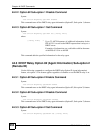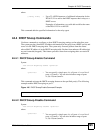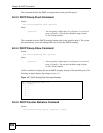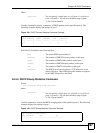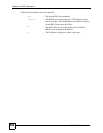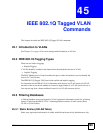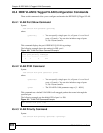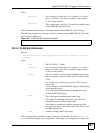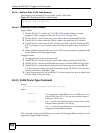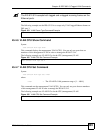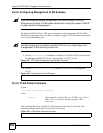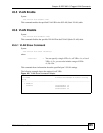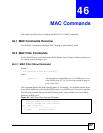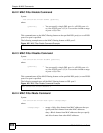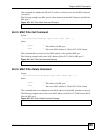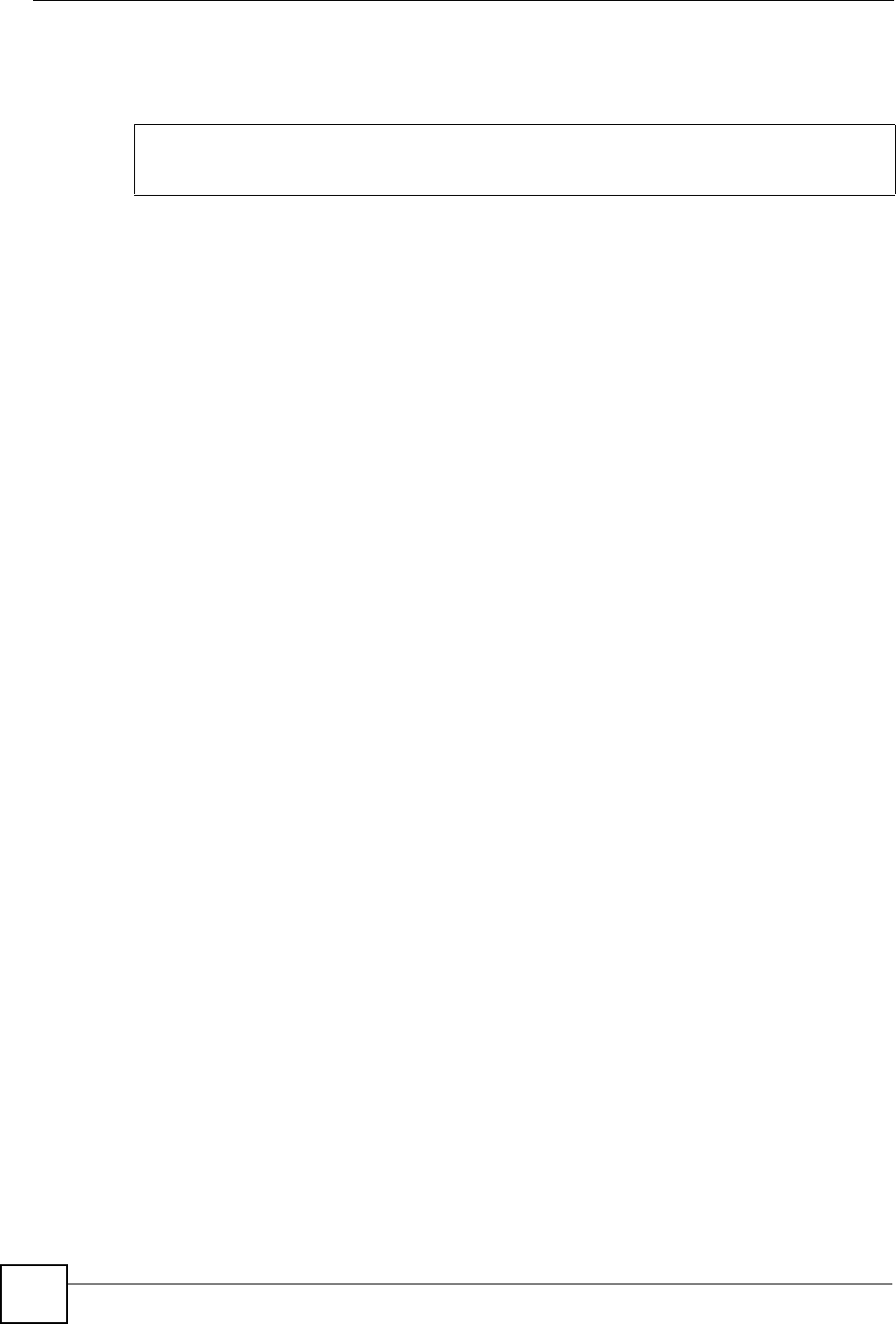
Chapter 45 IEEE 802.1Q Tagged VLAN Commands
IES-612-51A User’s Guide
302
45.4.4.1 Modify a Static VLAN Table Example
The following is an example of how to modify a static VLAN table.
45.4.4.2 Forwarding Process Example
Tagged Frames
1 First the IES-612-51A checks the VLAN ID (VID) of tagged frames or assigns
temporary VIDs to untagged frames (see Section 45.4.2 on page 300).
2 The IES-612-51A checks the frame’s source MAC address against the MAC filter.
3 The IES-612-51A then checks the VID in a frame’s tag against the SVLAN table.
4 The IES-612-51A notes what the SVLAN table says (that is, the SVLAN tells the IES-
612-51A whether or not to forward a frame and if the forwarded frames should have a
tag).
5 Frames might be dropped if they are sent to a CPE (customer premises equipment) DSL
device that does not accept tagged frames.
Untagged Frames
1 An untagged frame comes in from the LAN.
2 The IES-612-51A checks the frame’s source MAC address against the MAC filter.
3 The IES-612-51A checks the PVID table and assigns a VID and IEEE 802.1Q priority.
4 The IES-612-51A ignores the port from which the frame came, because the IES-612-
51A does not send a frame to the port from which it came. The IES-612-51A also does
not forward frames to “forbidden” ports.
5 If after looking at the SVLAN, the IES-612-51A does not have any ports to which it will
send the frame, it drops the frame.
45.4.5 VLAN Frame Type Command
Syntax:
ras> switch vlan frametype <portlist> <all|tag>
where
This command sets the specified DSL ports to accept VLAN tagged Ethernet frames, or both
tagged and untagged Ethernet frames.
Figure 153 Modifying the Static VLAN Example
ras> switch vlan set 2000 1:FU
ras> switch vlan set 2001 2:FU
<portlist> =
You can specify a single DSL port <1>, all DSL ports <*> or
a list of DSL ports <1,3 >. You can also include a range of
DSL ports <1,5,6~10>.
<all|tag> =
Use tag to have the specified port(s) accept only incoming
Ethernet frames that have a VLAN tag.
Use
all to have the specified port(s) accept both tagged and
untagged incoming Ethernet frames.



